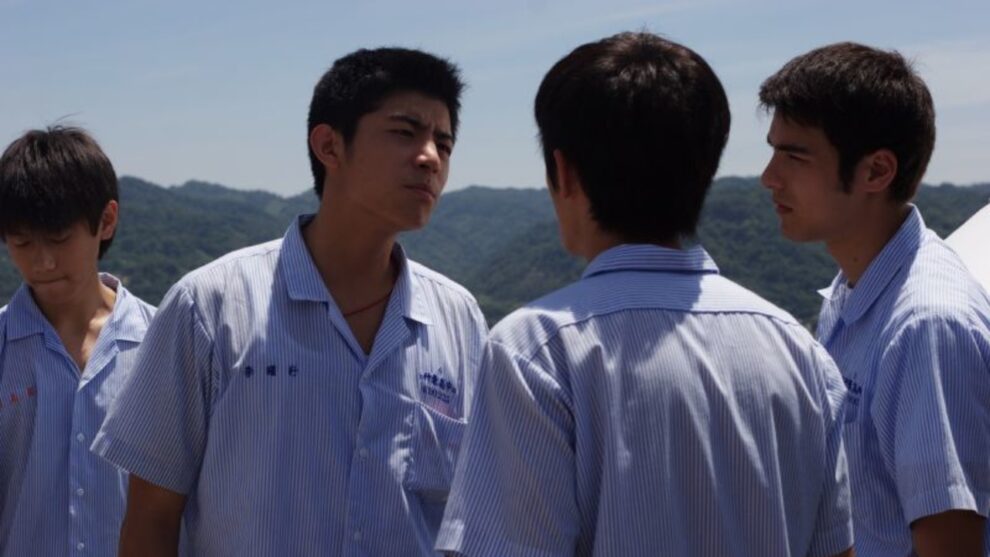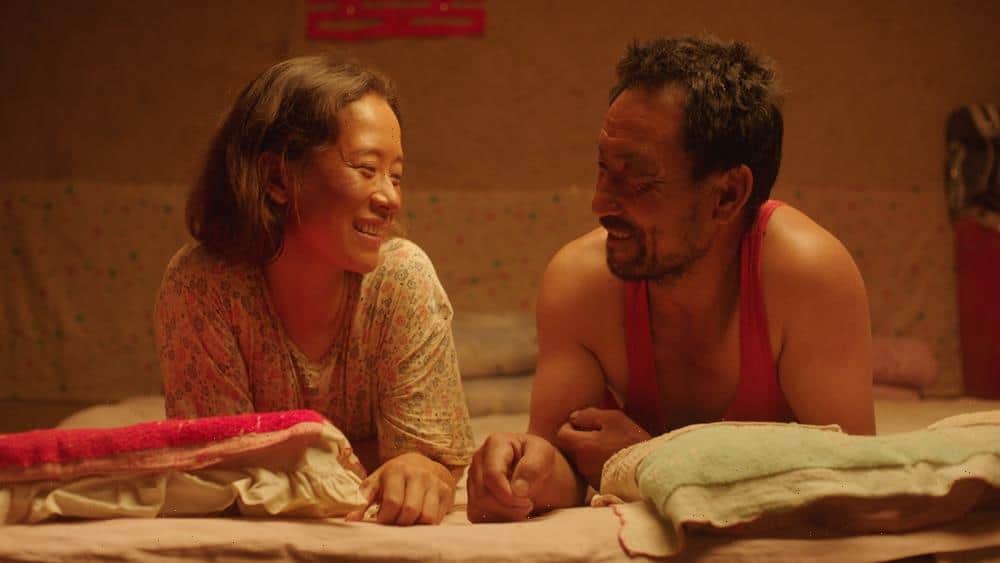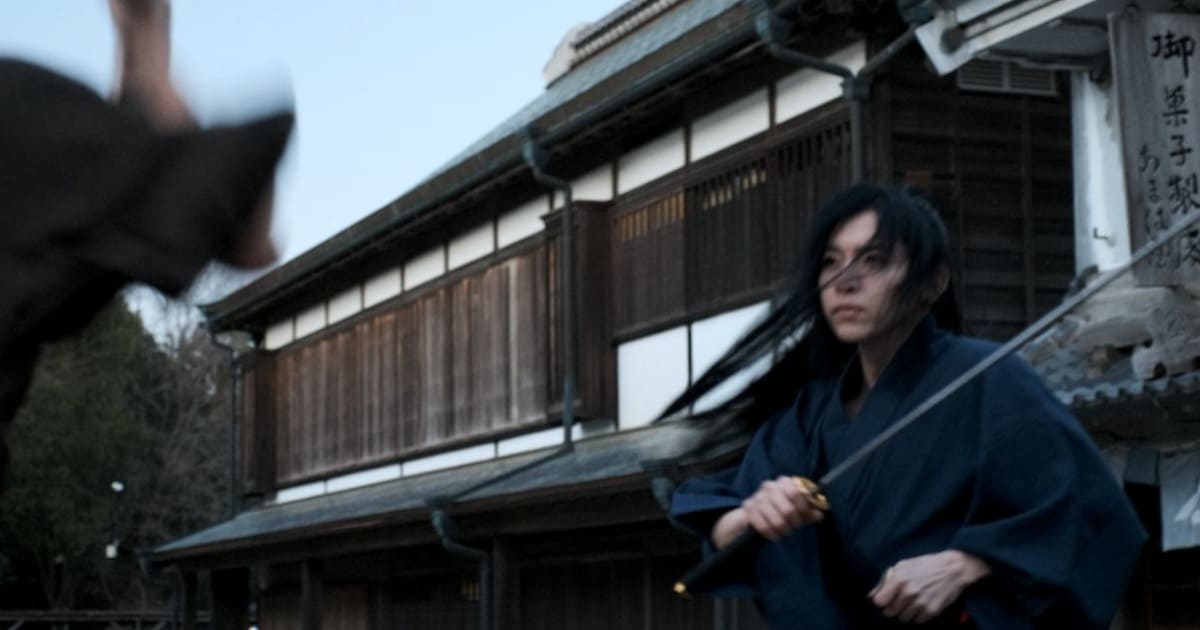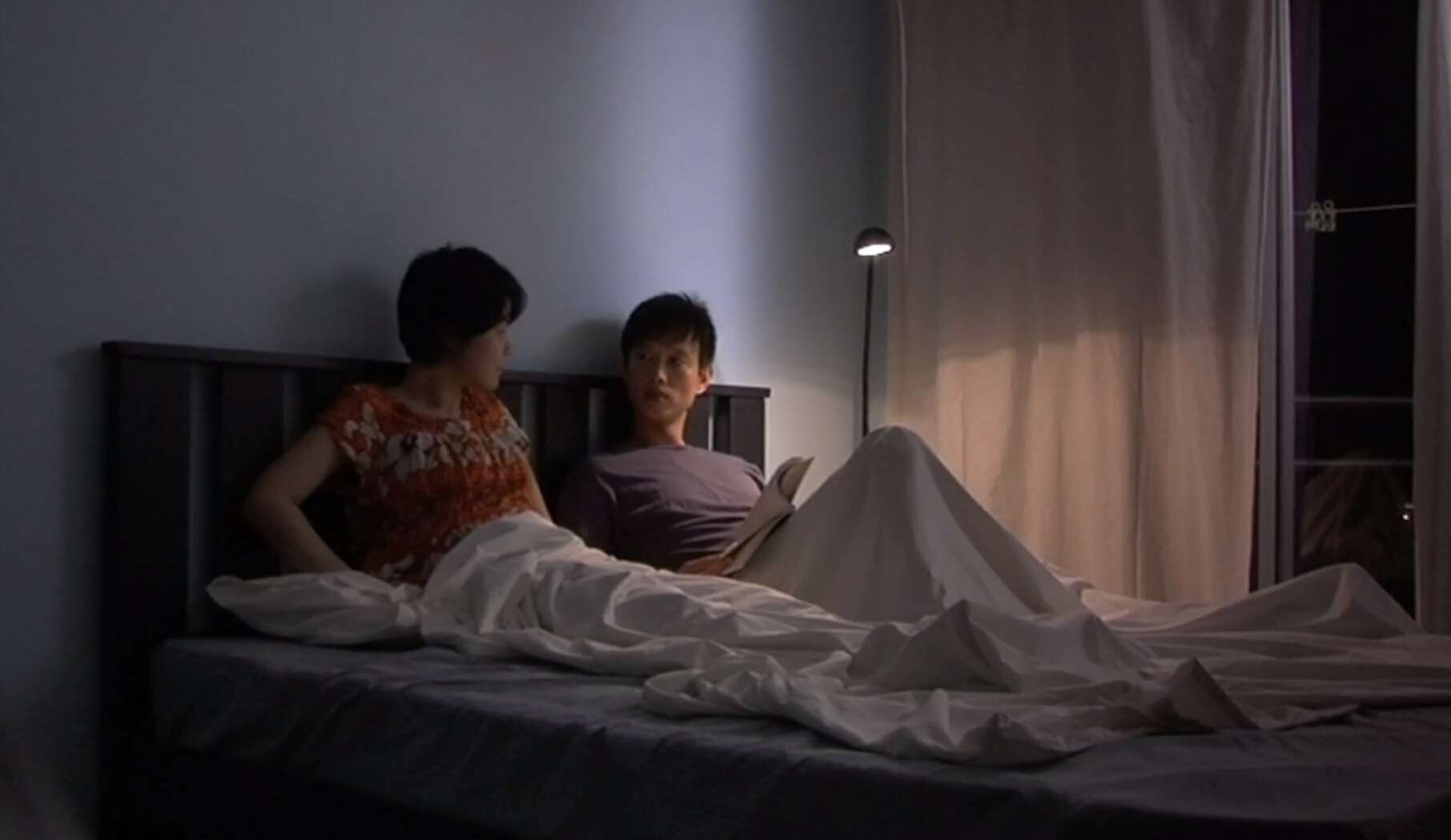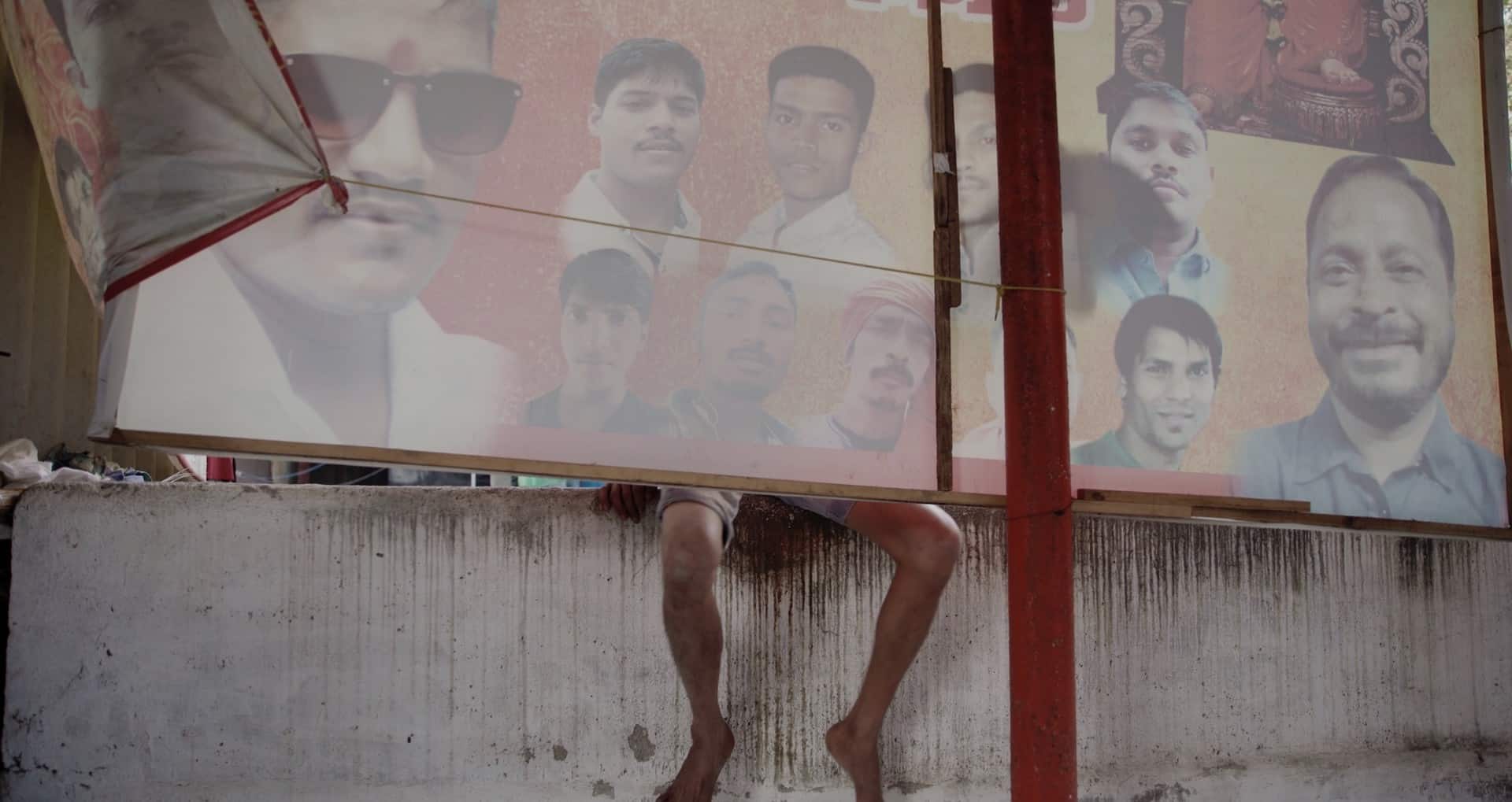The titular term refers to the strong winds that visit the coastal city and county of Hsinchu between September and November. Tom Lin, in his multi-awarded, semi-autobiographical debut, focuses on the period, both literally and metaphorically, while presenting a coming-of-age story that takes place in 1996, during the time of a tragic baseball game-fixing scandal in Taiwan.The movie was produced by Eric Tsang, who also has a small role in it.
A ‘gang' of a number of teenage boys led by pretty boy Yen, good student Tang and ‘righteous' Hsing, are experiencing all the regular “blights” of their age, in the midst of the aforementioned scandal. Yen is dating Yun, but is a true womanizer who always hangs out with other women, leaving his friends to take care of his mess, to their annoyance, particularly of Xiao, who tutors Yun and happens to be in love with her. A violent incident once more instigated by Yen's behavior, has Tang moving away from the company, something that weighs heavily on the former. A tragic incident and its consequences bring the boys face to face with their responsibilities.
Actually, Tom Lin's narrative essentially focuses on this last aspect, how the boys come of age by realizing their responsibilities, thus maturing and growing up from their previous state, that had them thinking that they can do anything without consequences. This aspect mostly revolves around Yen, who is the most immature of them all and also the one who suffers the heavier consequences, in a part of the story that presents the comment both literally and metaphorically. Soon, however, most of the members also have to ‘pay', in an aspect that makes them realize the consequences of their actions but also to take a hard look at themselves and their overall relationship.
Check also this interview
Furthermore, in a comment that seems to be permanent (as much as realistic) in this type of films, the girls are presented as much more mature than the boys in this age, with them essentially being proper women and the latter just kids. Lastly, the lack of parenthood, as almost every parent in the story is shining through their absence, is also harshly critiqued upon, even if in substract terms, as the kids are left alone to deal even with the most serious events in their lives.
This coming-of-age aspect and the whole presentation of the relationship of the protagonists is presented quite well, but the same does not apply to the rest of the narrative elements, and particularly the baseball aspect, which is rather disconnected from the main arc, and actually forced into the story. Furthermore, the last part, which tries to evoke a sense of nostalgia but results in intense melodrama is also not particularly well-handled, while one could also say that the turning point in the story comes too late in the movie.
In that regard, Chen Hsiao-Tong's editing, particularly regarding the placement of the various aspects of the story, emerges as problematic and probably the most significant issue here, even if the relatively fast overall pace is quite fitting. In terms of cinematography, Yu Jing-ping's work is quite good, with her accurately capturing the era through a combination of realism and nostalgia.
The acting is also on a high level, even if the two main girl protagonists are looking much older than their age, especially due to their make-up. Nevertheless, Jennifer Chu as Yun is quite good in presenting her hopeless love to Yen, who also plays the thoughtless pretty boy, who thinks the whole world owes him, in a very convincing fashion. Chieh Chang as Tang is equally good particularly in the way he presents his frustration and his bottled up feelings for Yun. Edison Wang as Hsing plays the “voice of reason” realistically, although the moment he erupts is where his performance finds its apogee.
Despite the aforementioned issues, “Winds of September” is a very meaningful and entertaining films when it focuses on its main arc, which is where its true value lies.


